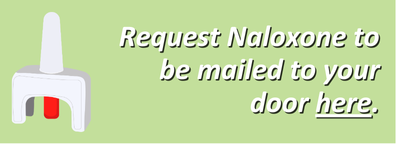As mosquito and tick season begins in Northwest Ohio, the Toledo-Lucas County Health Department reminds residents to take steps to prevent bites — and the diseases they can carry, including West Nile virus and Lyme disease. In Ohio, ticks are most active from April through September, while mosquitoes are active from May through October.
Mosquitoes
The most effective way to protect against mosquito-borne diseases is through bite prevention. Being aware of mosquito and mosquito-borne disease activity allows you to take action to protect yourself and others: avoid mosquitoes and mosquito bites, plan ahead for mosquitoes while traveling and stop mosquitoes from breeding in and around your home.
Mosquitoes can bite day or night and live indoors and outdoors. Here are ways to avoid mosquito bites and prevent mosquito-borne diseases:
- If you are outdoors when mosquitoes are most active, be sure to wear long pants, a long-sleeved shirt, shoes and socks.
- Wear light-colored clothing, which is less attractive to mosquitoes.
- Use EPA-registered mosquito repellent and follow the label directions.
- Wear clothing and gear treated with permethrin, an insecticide (do not apply permethrin directly to skin).
- Use mosquito netting when sleeping outdoors or in an unscreened structure.
When traveling:
- Check travel notices on CDC’s Travelers’ Health website for mosquito-borne and other disease transmission updates for the country or countries you are visiting.
- Speak to your health care provider about your travel plan. You may need malaria prophylaxis or yellow fever vaccination, depending on your destination.
At home:
- Eliminate standing water in items like buckets, flowerpots, bird baths, and wading pools.
- Clear and maintain gutters.
- Keep screens on windows and doors in good repair.
- Change pet water dishes regularly.
Ticks
Ohio is home to about a dozen tick species, but three — the American dog tick, blacklegged tick, and lone star tick — are most commonly encountered by people and pets.
“If you find a tick attached to your body, remove it promptly and watch for symptoms like fever, rash, fatigue, or muscle aches,” said Health Commissioner Karim Baroudi. “Contact your healthcare provider if symptoms develop.”
To avoid tick bites and prevent tick-borne diseases:
- Avoid wooded, bushy areas with high grass and leaf litter. Walk in the center of trails.
- Wear clothing and gear treated with permethrin insecticide (do not apply permethrin directly to skin).
- Use EPA-registered tick repellent and follow the label directions.
After outdoor activities:
- Shower within two hours to help find and remove ticks.
- Conduct a full-body tick check, using a mirror for hard-to-see areas.
- Check clothing, gear, and pets for ticks.
- Tumble dry clothes on high heat for 10 minutes to kill ticks.
Tick removal:
- Use fine-tipped tweezers to grasp the tick close to the skin and pull upward with steady pressure.
- Clean the bite area and your hands with rubbing alcohol, iodine scrub, or soap and water.
- Dispose of ticks by submersing them in alcohol, sealing them in a bag, or flushing them down the toilet. Never crush a tick with your fingers.
- Avoid folklore methods like using nail polish, petroleum jelly, or heat to remove ticks.




